Photo: Maskot via Getty Images
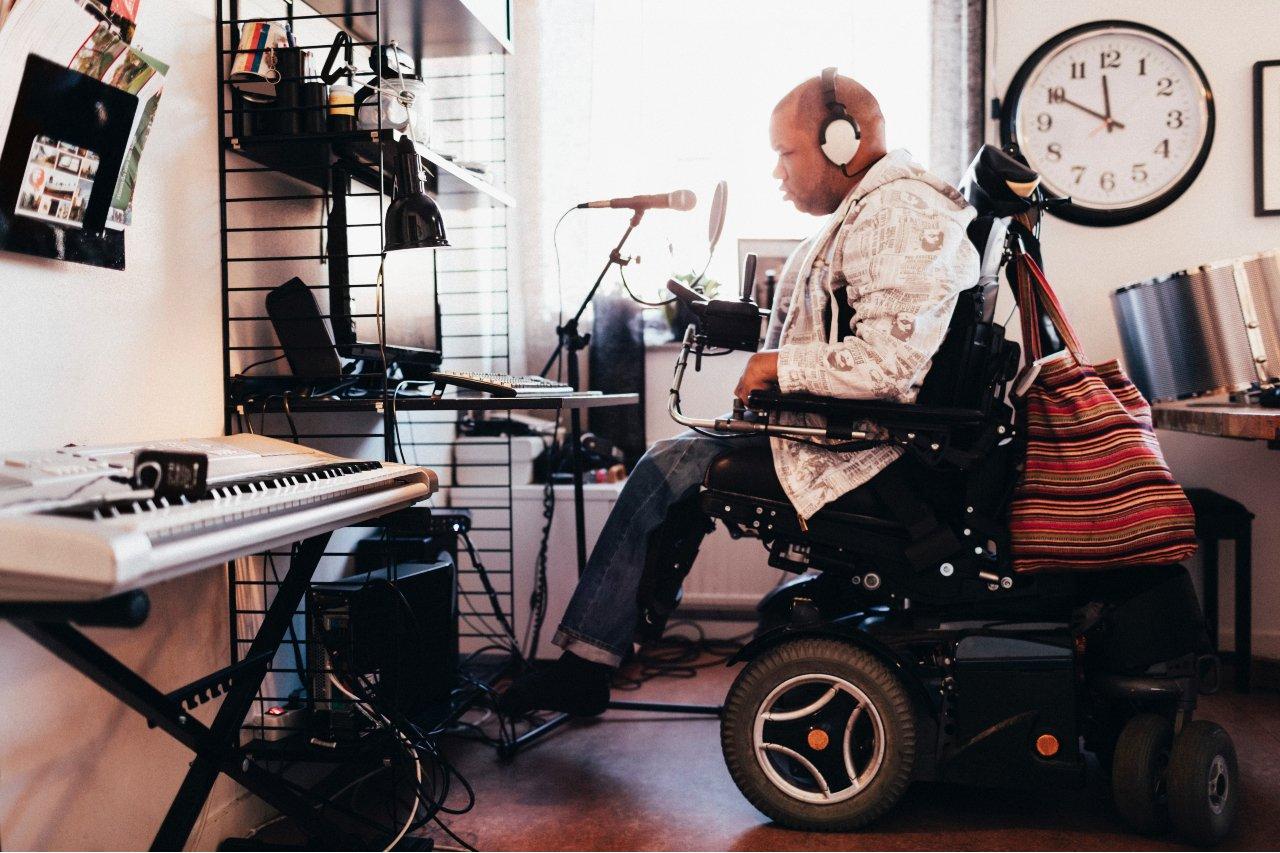
list
Celebrate Disability Pride Month By Supporting These Organizations For Music Creatives With Disabilities
Disability Pride Month provides an opportunity to honor the history, achievements, experiences and struggles of the disability community. Here are five organizations that support music creatives with disabilities.
Society has made major strides in its inclusivity of people with disabilities, but it still has a long way to go. And that certainly applies to the worldwide music community — represented in part by the Recording Academy.
Disability Pride Month is observed every July; it's as good a time as ever to meditate on how disability is something most of us will experience in our lives, and that discrimination or exclusion on that basis is intolerable.
To counteract these forces, let's use Disability Pride Month to uphold the experiences of those who live on the spectrum of disability. It's incumbent on the world's leading society of music people to shine a light on those in the music world who are part of this global community.
Let's turn positive thoughts into practical action. Here are five organizations that support music creatives with disabilities.
RAMPD
RAMPD — which stands for Recording Artists And Music Professionals With Disabilities — aims to "amplify disability culture, promote equitable inclusion and advocate for accessibility in the music industry."
The organization was founded by recording artist and accessibility advocate Lachi, who's been vocal about her journey from "low vision to no vision," and celebrating blindness through music and other avenues.
"When we celebrate hip-hop, we celebrate 50 proud years of unbreakable spirit, despite existing in a system built for otherwise," Lachi says. Hip-hop artists with disabilities and mental health conditions create from a place of innovation and drive, navigating success in a world not quite built for their success. It's up to us in the industry to support and propel those creators most impacted, most underrepresented, and most intersected, as they have the richest, most untapped, untold stories of resilience."
Visit RAMPD's website for more information.
Krip Hop Nation
Krip Hop Nation is a worldwide society of artists with disabilities that's been going strong for 16 years, and aims to provide equal opportunities in the music industry to those with disabilities.
"The focus is on people with their skills and abilities, not their disabilities," their website declares. "We do not want pity, we want consideration, equality, respect and recognition to the same extent that every physically and mentally healthy person enjoys them."
Krip Hop Nation was founded by writer, poet and activist Leroy F. Moore Jr., who was diagnosed with cerebral palsy.
"Disability justice was started by Black and brown disabled folks," Moore says, "but there’s a need to rebirth it with Black and brown Krip theory and everyday experiences in the arts, music. activism, writing and thinking."
Check out their website to get the scoop.
SoulTouchin' Experiences
Across a range of industries and spheres, SoulTouchin' Experiences aims to fortify people with disabilities' senses of autonomy and accessibility.
As the organization puts it, they have "a heart a soul commitment to those who need assistance to begin caring for themselves and in turn caring for others."
SoulTouchin' Experiences is dedicated to the issues of "access inclusion and empowerment" in all regards.
"The hustle ain’t accessible. So we hustle different," founder Keith Jones says. "We are not a fully realized movement until we are an inclusive movement."
If you share this cause, you can support them directly — and learn more about their mission — at their website.
Sins Invalid
Sins Invalid declare themselves to be a "disability justice based performance project that incubates and celebrates artists with disabilities."
And intersectionality is the name of the game, as they're focused on "centralizing artists of color and LGBTQ / gender-variant artists as communities who have been historically marginalized."
"Disability Justice is an honoring of the long-standing legacies of resilience and resistance," says co-founder Patty Berne, "which are the inheritance of all of us whose bodies or minds will not conform."
They do this by promoting leadership opportunities for disabled people and providing a nurturing space for artists with disabilities to develop and present artistic works. For more information on Sins Invalid, visit here.
4 Wheel City
Here's how they roll: 4 Wheel City is an entertainment organization offering support to people with disabilities of all stripes.
They were founded by Namel "Tapwaterz" Norris and Ricardo "Rickfire" Velasquez — hip-hop artists in wheelchairs due to the tragedy of gun violence.
Rather than let their circumstances subsume them, though, they've opted to give back via programs that connect hip-hop to disability culture.
"To me, hip hop culture and disability culture are interconnected and one in the same. They both come from underserved communities who've had to fight for their respect, for their place in society," Norris says. "However, as we celebrate 50 years of hip hop, the voices and contributions of many disabled hip hop artists continue to go unheard. The goal is to change this so the next 50 years of hip hop includes many more stories and music from disabled artists like myself."
With folks like Norris and Velasquez — and everyone else above — in the disability community's corner, the needle of disability justice is pushed ever forward.
"I Made My ADHD Into My Strength": Understanding The Link Between Rap & Neurodivergence
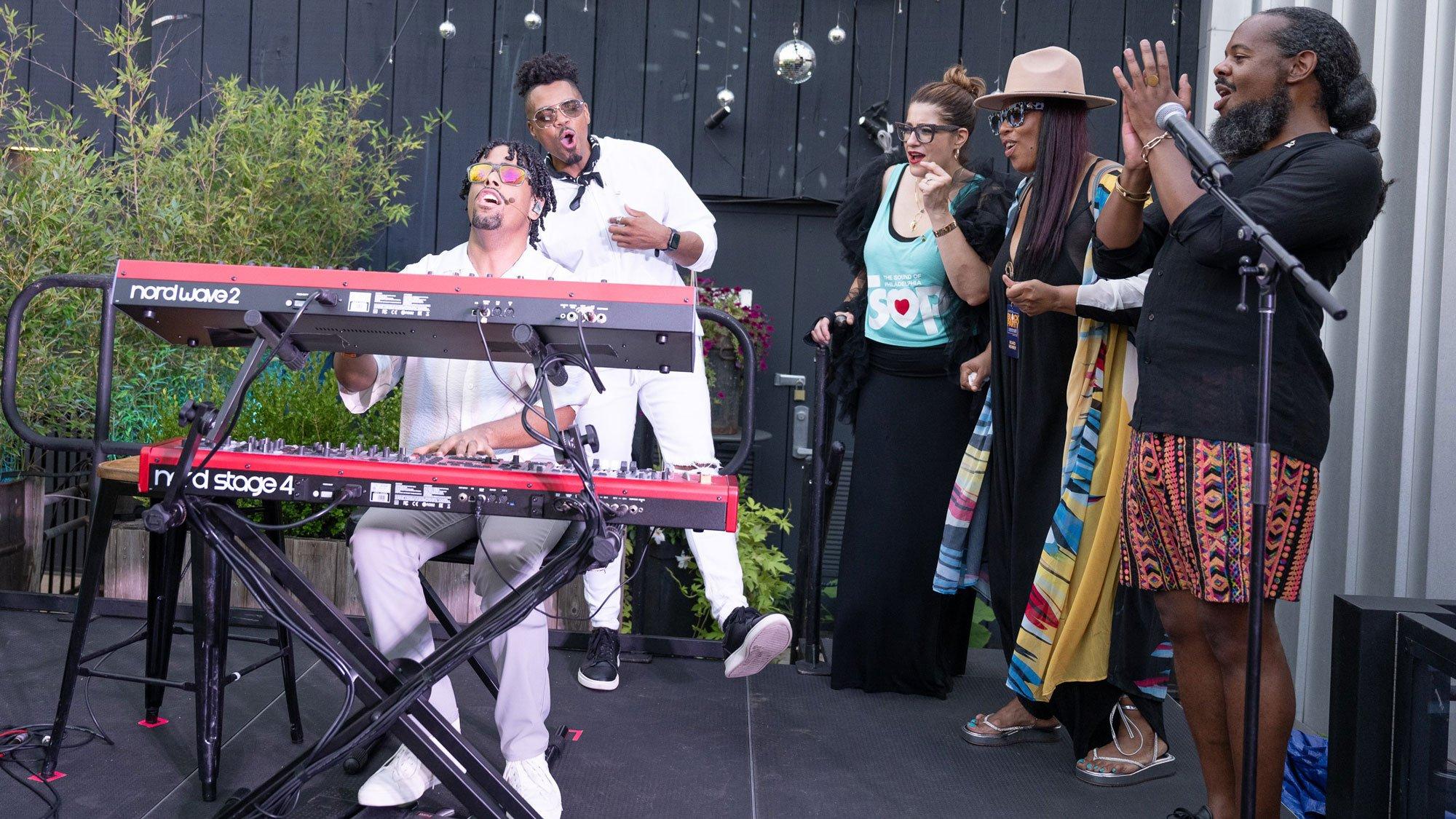
Photo: Lisa Lake
news
How The Recording Academy's RAA+D Network Is Supporting Artists & Creators With Disabilities And Building Accessibility For All
Through RAA+D, its Disability + Accessibility Network, the Recording Academy is building true accessibility for everyone in the music community and championing artists and music professionals with disabilities.
Navigating the multitude of challenges and roadblocks within the music industry can often seem like a herculean feat. Musicians and industry professionals are expected to master the intricacies of creating and performing music while also juggling the economics and business dealings of the industry. These challenges can be even more daunting for creators and industry professionals with disabilities.
As the leading global community of music professionals, the Recording Academy is acutely aware of these unique challenges, and it's dedicated to supporting creators and professionals from all backgrounds and experiences.
That's the vision behind RAA+D (Disability + Accessibility), the Recording Academy's new member resource group aimed at supporting artists, creators and professionals with disabilities and advancing their needs and initiatives. Unveiled during the Recording Academy Philadelphia Chapter's inaugural Block Party during Disability Pride Month last month, RAA+D is dedicated to achieving true accessibility for everyone in the music community and going beyond mere compliance.
Through RAA+D, the Academy is working to ensure that all members can fully engage in the organization's programs by providing elements such as live American Sign Language (ASL) interpreters, accessibility ramps at our shows and events, and closed captioning for our programs.
"In recent years, the Academy has made significant strides to ensure that individuals from all walks of life feel supported and a sense of belonging within the Recording Academy spaces," Ryan Butler, Vice President of Diversity, Equity & Inclusion for the Recording Academy, said in an interview. "Through the implementation of RAA+D, the Academy aims to create a robust support system for the disability community, providing opportunities for networking and celebrating their contributions to the greater music community."
Read More: How The Music Industry Must Work To Close The Accessibility Gap: 4 Eye-Opening Takeaways
RAA+D's initiatives are driven by a commitment to foster an inclusive environment where accessibility and community are priorities. To help accomplish this, the Recording Academy has partnered with RAMPD (Recording Artists and Music Professionals with Disabilities), one of the leading organizations supporting music creatives with disabilities, as a community partner to advance the work of RAA+D on a year-round basis.
RAA+D is part of the Recording Academy's DREAM (Diversity Reimagined by Engaging All Musicmakers) Initiative, an inclusive network of member resource groups spotlighting the contributions and initiatives of creators and professionals from diverse cultural backgrounds.
Spearheaded by the Academy's Diversity, Equity & Inclusion (DEI) team, the DREAM Initiative recently launched multiple resource groups, including Gold Music Alliance, which honors and elevates Pan-Asian members and allies within the GRAMMY organization and the music industry, and Academy Proud, which celebrates and honors LGBTQIA+ Academy members and music industry professionals. Other active groups within the DREAM Initiative include Women in the Mix, launched in 2019, which builds community for all women and increases representation within the Recording Academy and in the music industry; the Black Music Collective, launched in 2020, which is a group of prominent Black music creators and professionals focused on advancing Black music and culture; and GRAMMYs Next Gen, which supports and empowers the next generation of music creators and professionals.
As the Recording Academy continues to establish membership networks that align with our wide-spanning mission and core values, the DREAM Initiative will launch multiple member resource groups spotlighting the diverse music community, including groups celebrating and supporting Latin and Indigenous creators and music professionals.
"As we look to the future, we are thrilled about the transformative potential of RAA+D," Butler reflected. "This initiative reaffirms our commitment to inclusivity and the recognition of the diverse talents within the disability community. We are excited to see the positive impact it will have on our organization and our members."
With additional reporting from John Morrison
Latest News & Exclusive Videos
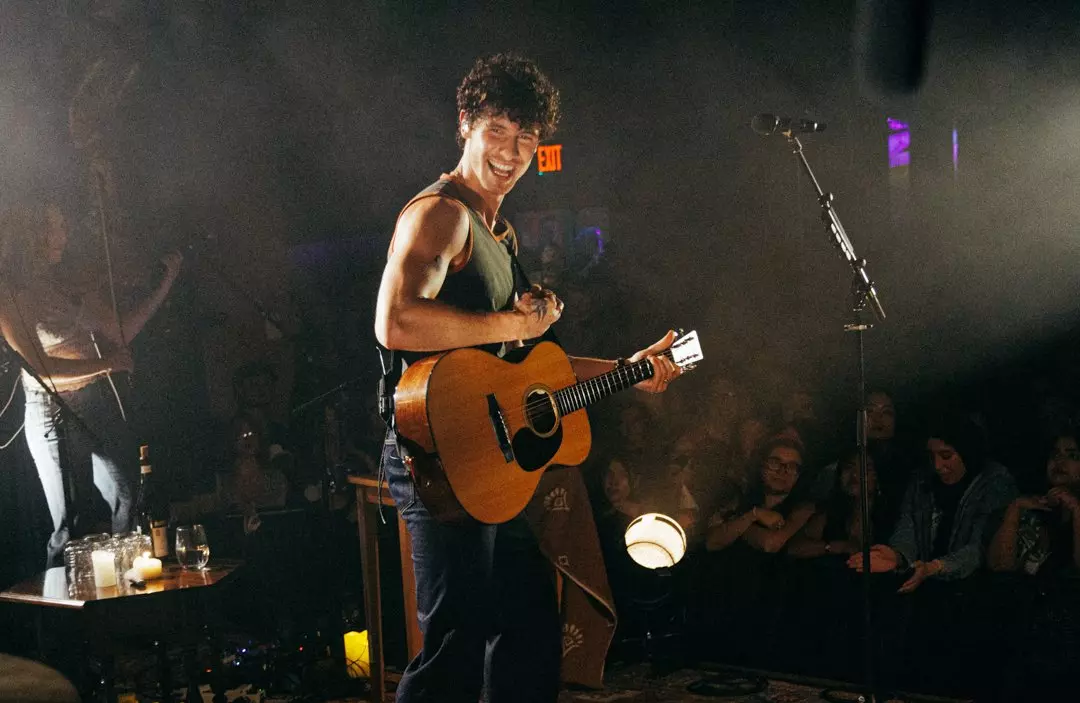
New Music Friday: Listen To New Songs From ATEEZ & G-Eazy, Shawn Mendes, Latto, & More

Watch Alanis Morissette Win At The 1999 GRAMMYs
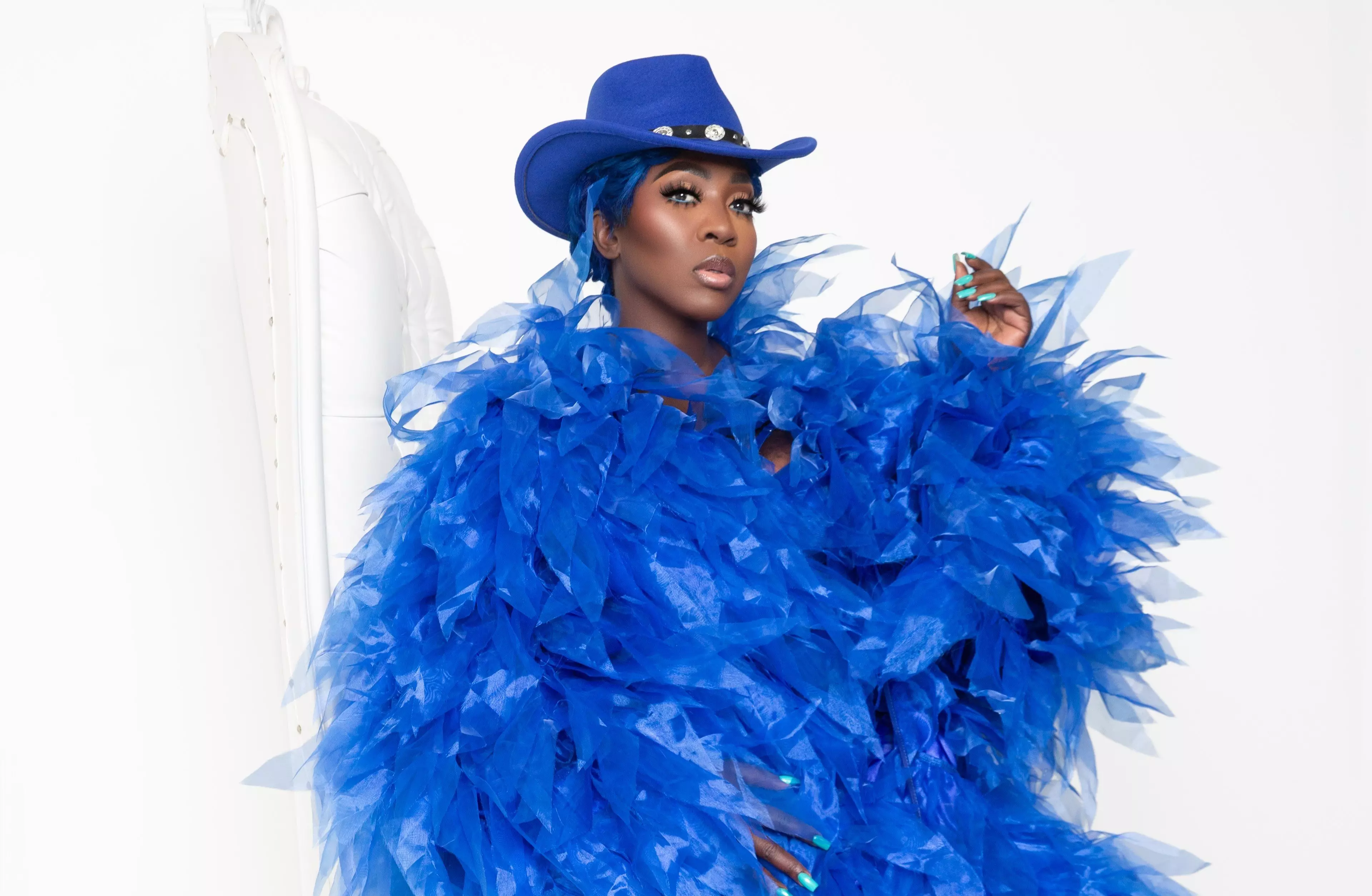
Dancehall Legend Spice Reflects On 'Mirror 25,' Her Near Death Experience & Owning Her Own Vision
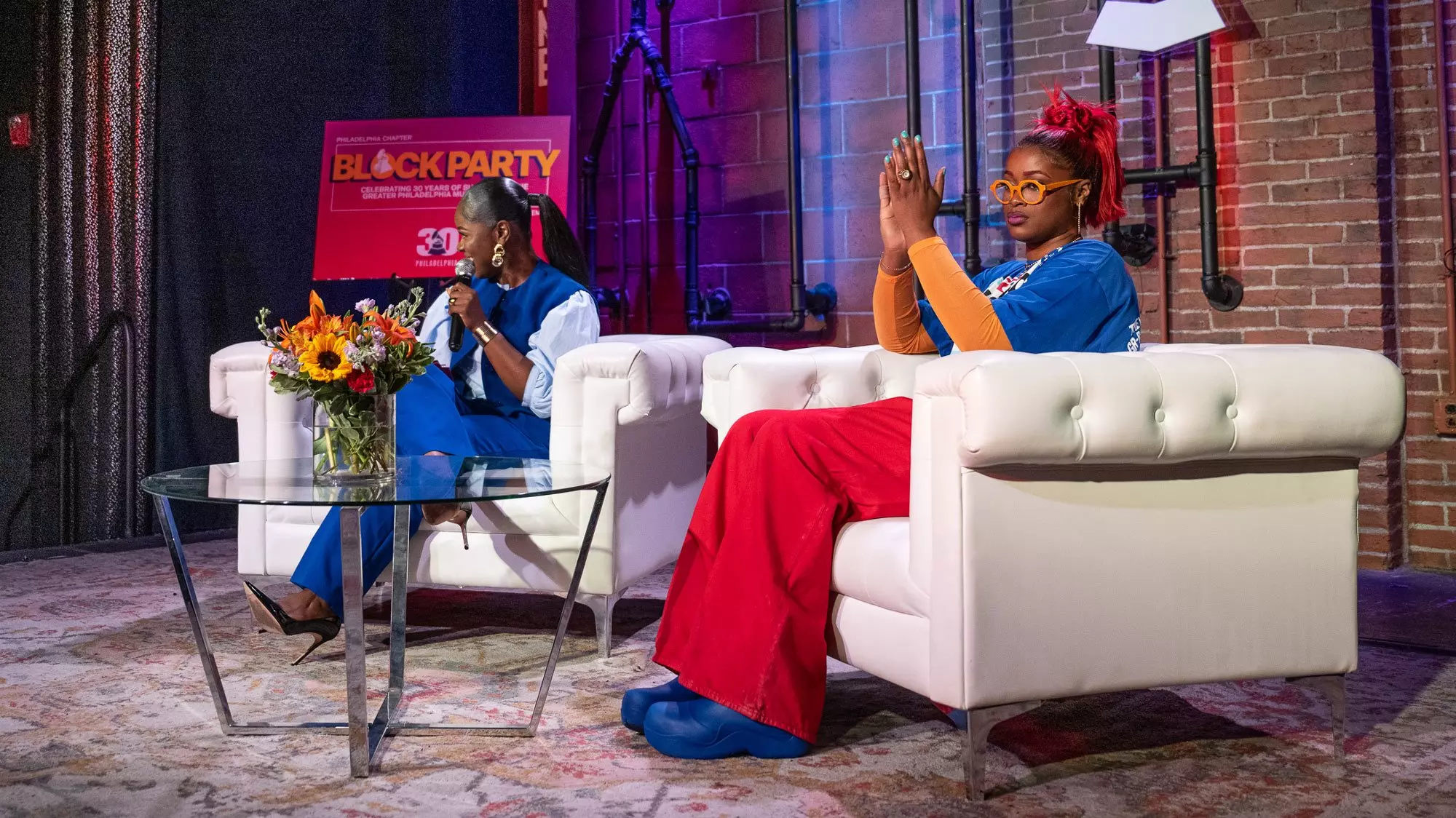
The Recording Academy Philly Chapter Celebrates 30 Years With An Inaugural Block Party & Fireside Chat With Tierra Whack
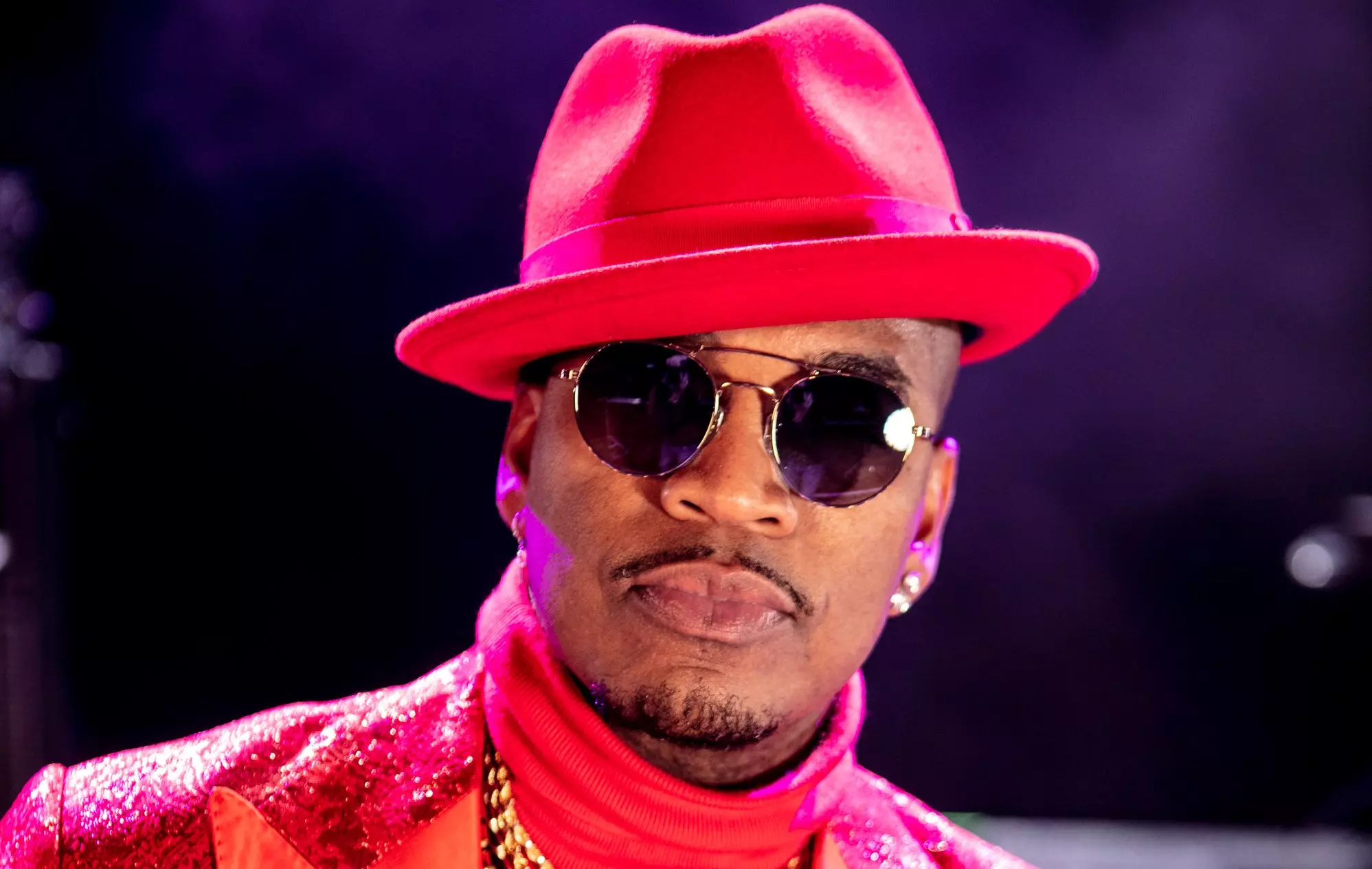
Behind Ne-Yo's Biggest Hits: How Jay-Z, A Wardrobe Malfunction & Stargate Influenced "So Sick," "Closer" & More
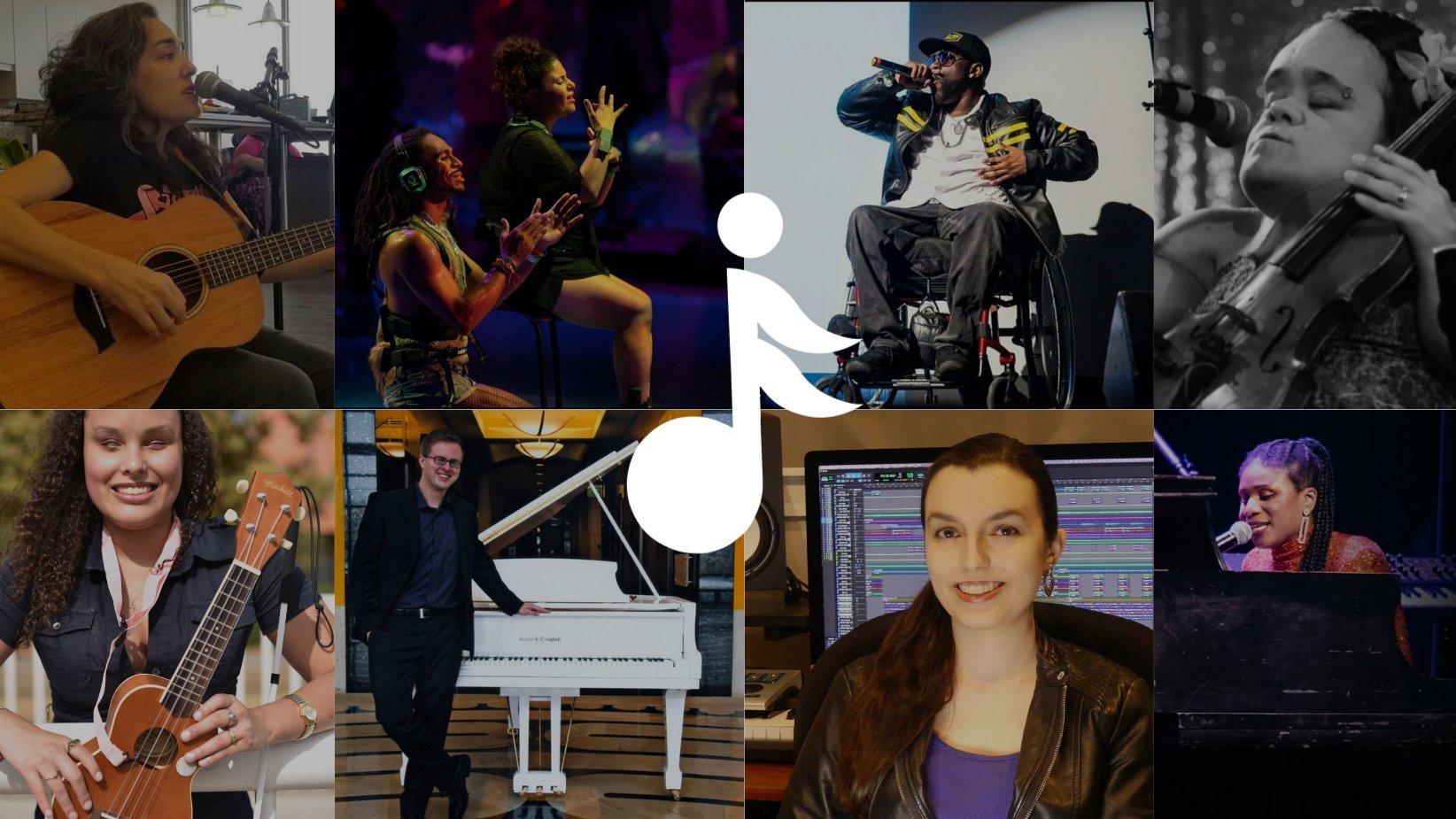
Top Row: Tracy Marie - Credit Tracy Marie, Brandon Kazen-Maddox and Shelly Guy - credit: Lincoln Center, Namel Norris - Credit: Joe Papeo, 2022 Danny Awards, Gaelynn Lea - Credit: Bartek Buczkowski. Bottom Row: Precious Perez - Credit - Alina Nadolu, Stephen Letnes - Photo credit: Gary Stefanski, Shelby Lock - Credit Shelby Lock, Lachi - Photo Credit: VOYA Inc, Clearwater Florida, 2021
feature
5 Ways The Music Industry Can Support Recording Artists And Music Professionals With Disabilities
In honor of Disability Pride Month, here are some tips on how the music industry can support creators and creative professionals who live with disabilities.
As Disability Pride Month — which takes place every July — draws to a close, it's incumbent on the music community to continue elevating and celebrating music professionals with disabilities of all kinds. Below is a helpful, pragmatic guide to how we can do so — both in music-industry situations and in our everyday lives.
The following is a guest piece by Recording Artists and Music Professionals with Disabilities (RAMPD), a coalition of established creators with disabilities who work to promote equitable inclusion, visibility and accessibility in the music industry.
Having recently worked with the 64th GRAMMYs on a visible stage ramp, sign language on the red carpet, and live captioning and audio description for video content, RAMPD is on a mission to amplify Disability Culture in a massive way.
Read on as RAMPD members share key ways the music industry can support creators and creative professionals with disabilities on a year-round basis and in a meaningful manner.
1. Listen To The Disability Community
*Lachi. Photo courtesy of RAMPD.*
Lachi (Founder/President, RAMPD):
First ask. Then listen.
With 26 percent of Americans having some form of disability, neurodiversity, chronic illness or communication difference, we are a vast and diverse community full of rich, untold stories and deeply moving and impactful experiences, yet are untapped by popular culture.
The disability community has strong perspectives on how we wish to be viewed and portrayed, but seldom have the opportunity to voice them. Thus many decisions are made about us without us and are often harmful to the community.
When planning design, programming, recruitment strategies, or anything else — even if it has nothing to do with disability — a disabled person tapped into the community must be in the room.
"But Lachi," you might say, "I don't know anyone in the music industry with a disability." Here at RAMPD, we provide resources where folks can find, source or hire top disabled talent and professionals who are knowledgeable, approachable, and present to affect growth.
*Wawa Snipe. Photo courtesy of RAMPD.*
Aoede (RAMPD, Events Co-Chair):
Encourage promoters, agents and venues to listen to artists and musicians with disabilities regarding their needs.
More than two thirds of disabled artists don't disclose due to stigmas, and report risking their health to perform. One way to remove fear of artists disclosing their disabilities is to respect an artist with disabilities' rider.
DJ Pastor Rock (RAMPD, Partnerships):
It all starts with awareness; paying attention to who is and, more importantly, who isn't there. Awareness is an important entry point for building relationships with people too often excluded.
2. Recognize Disability As A Natural And Cultural Form Of Diversity
RAMPD Community:
Disability culture is a celebration of people who identify as disabled, while acknowledging the vast diversity of the disability experience and each person's inherent and equal worth.
It is unapologetic, creative, innovative, adaptable, imaginative, and rooted in problem-solving.
It is based on the premise that disability needs to be seen, respected, included and celebrated. It includes our worldviews, our perspectives, our contributions, our art, our words, and our music.
Disability culture — at least in part — is a vibrant and thriving counter-response to the exclusion, marginalization and oppression historically and currently experienced by many disabled individuals.
*Namel Norris. Photo: Joe Papeo, 2022 Danny Awards*
Namel Norris (RAMPD, Partnerships):
One of the biggest ways the music industry can be more disability-inclusive is by getting more involved in our culture and the amazing art, performances and musical contributions we already have going on.
Zak Sandler (RAMPD, Pro Member):
We need to create an environment where disability is not hidden out of shame, but rather, celebrated out of pride. Record companies and agents must actively seek out disabled artists and ensure we represent a consistent percentage of their clients.
*Shelby Lock. Photo courtesy of Shelby Lock.*
Shelby Lock (RAMPD, Pro Member):
Evaluate people based on their skills and work ethic rather than their health status. There can be a culture of working non-stop in the music industry — especially in the studio world. Don't write us off, and we'll prove with our results that we deserve to be here too.
Leroy Moore Jr (RAMPD, Pro Member):
Let's also admit to the -isms that have locked out artists who become disabled/deaf during their career in the music industry.
***Stephen Letnes. Photo courtesy of RAMPD.***
Stephen Letnes (RAMPD, Treasurer):
Music affects and reflects what we value. Disability culture is not something new; it has always been here. The music industry can and should amplify such a powerful yet neglected part of our culture.
3. Intentional Visibility And Representation From The Stage To The Boardroom
Precious Perez (RAMPD, Memberships Chair):
Disability representation on screen is crucial. There is so much power in looking at the media and seeing yourself and your community represented.
Disability is the one diversity left out of every diversity conversation. The one minority that is not acknowledged. So many people do not understand disability — and moreover, do not see or experience disabled artists on an equal playing field.
It is for this reason that highlighting and booking disabled performers for prominent visibility opportunities is not only empowering, but deeply impactful for the general public and the industry as a whole.
*Precious Perez. Photo: Alina Nadolu*
Aoede:
Promote and implement accessibility measures at major events such as the following:
Visible ramps to the stage; visible ASL interpreter(s) and self-description; and on-stage and below-the-line representation of artists and professionals with disabilities.
Publicly announcing accessibility measures through press releases, on websites and social media is a highly encouraged way to include the disability community — while getting non-disabled viewers excited or interested in these measures.
Namel Norris:
Invest in the artists who are already making a massive impact purposefully amplifying Disability Culture all over the world.
There are also accomplished entertainment professionals who can sit on your boards to ensure disability is part of the conversation at the board level.
It's not about giving us a handout; it's about giving us a hand up. An equitable fair inclusive seat at the table in the music industry.
*Brandon Kazen-Maddox. Credit: Lincoln Center*
Brandon Kazen-Maddox (ASL Performer):
Incorporate artists from the deaf and signing community to not only translate musical events into ASL, but to work hand-in-hand with musical artists to create accessible work from the ground up.
4. Inclusive Hiring — From Behind-The-Scenes To Contractor To Executive
Andrea Jennings (RAMPD, Secretary):
Let's level the playing field for music executives, music creatives behind the scenes, musicians, and music administrators with disabilities.
We are talented professionals at every level. We are opinion leaders and want to contribute our perspective to society; however, we are often met with accessibility and pay gap barriers.
To achieve success, we need equitable solutions like accessible outreach programs, inclusive employment opportunities, paid on-the-job training, and intentional accommodation support.
Lachi:
Let's create work, event and office environments conducive to disabled people, including the over 70% with non-visible disabilities. The last thing we want is to find out that someone feared self-advocating or requesting work accommodations… in their exit interview!
5. Intentional Event And Venue Accessibility For Artists and Patrons
Aoede:
Hybrid events are a great opportunity for high-visibility events to promote inclusion and accessibility.
As a disabled artist living with chronic illness, I look entirely to virtual events to engage and connect with others in my music community.
These events allow people like me, who are unable to attend physical events (due to health risks, travel or other concerns) access to participate and be included virtually.
*Tracy Marie. Photo courtesy of RAMPD.*
Tracy Marie (RAMPD, Events):
Venues can better implement inclusive practices by simply providing a direct line on their website to a designated staff member who intakes accommodation requests.
That goes for a patron, an artist or even those interested in seeking employment. An open line of communication helps those with accessibility and accommodation needs feel welcomed.
*Gaelynn Lea. Photo: Bartek Buczkowski*
Gaelynn Lea (RAMPD, VP):
A major way the music industry can be more inclusive is by hiring accessibility coordinators on their full-time staff to ensure operations, technology, press, and policies are both inclusive and supportive of disability and that access needs are being met for both employees and customers.
Folks hired for these positions should identify as disabled themselves so that they have a personal relationship with the reality of disability, and so that they can seek input and resources from their own community when faced with an unfamiliar issue.
All too often, access is seen as a secondary concern or a bonus, when it should really be built in from the ground up.
There is a deep pool of disabled talent that could be tapped for this important work. Now, it's up to the music industry to create these positions in their organizations.
Meet Question, A Rapper/Producer Who Doesn't Want To Be Boxed In By Blindness
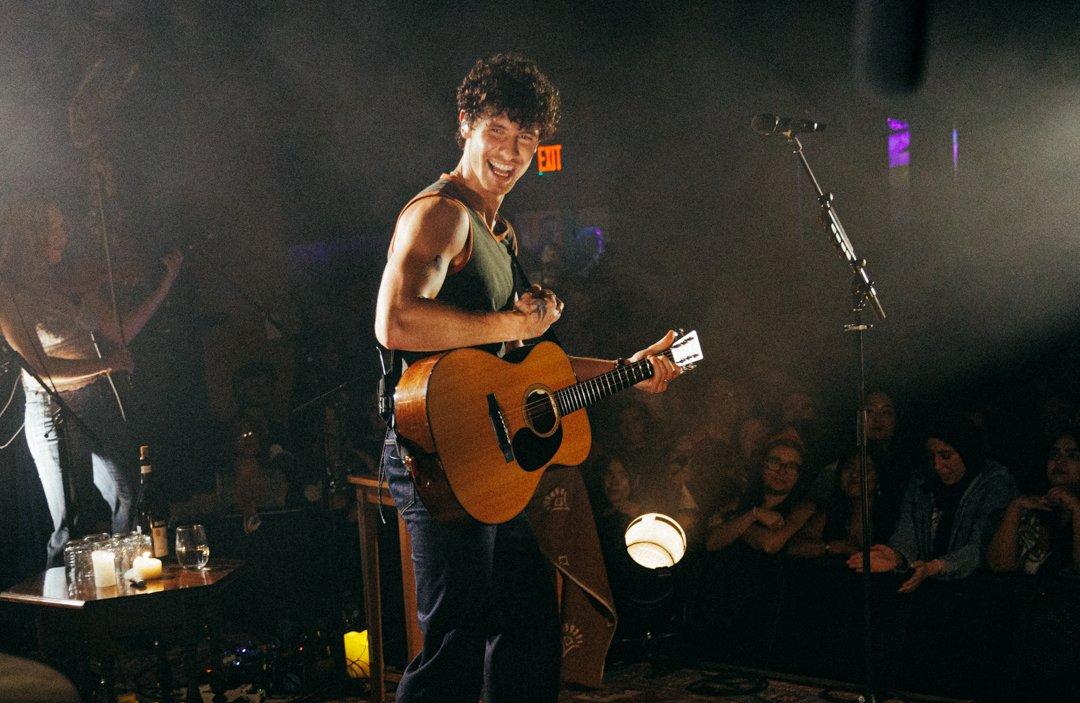
Photo: Thomas Falcone
list
New Music Friday: Listen To New Songs From ATEEZ & G-Eazy, Shawn Mendes, Latto, & More
Check out some of the new music that dropped on Aug. 9, from Elvis' hometown recordings to Katy Perry's latest bop.
As August temperatures remain hot, so does the new music. With fresh tracks spanning all genres from dance to rap, there's plenty to explore this New Music Friday.
Check out albums like NIKI's Buzz, Logic's Ultra 85, and Little Big Town's Greatest Hits, as well as first tastes of forthcoming projects from Kelsea Ballerini, Katy Perry and Leon Bridges. Plus, there's plenty more new songs from the likes of The Kid LAROI and beabadoobee, as well as thrilling collabs from ATEEZ and G-Eazy, and J Balvin and Feid.
No matter what genre you gravitate towards, there's something new to discover. Be sure to check out these 10 musical offerings before you kick off your weekend.
Shawn Mendes — "Why, Why, Why" & "Isn't That Enough"
Just hours before New Music Friday hit, Shawn Mendes celebrated his 26th birthday with a gift to his fans: not one, but two new songs.
The first taste of his upcoming fifth studio album, Shawn, the two tracks — "Why, Why, Why" and "Isn't That Enough" — present a folkier side of Mendes' musicality, leaning into the acoustic sound of his early music but with an indie flair. Mendes also released the official video for "Why Why Why," which sees shots of the singer playing his guitar in nature transposed with footage of him performing on stage.
In celebration of the release, Mendes played an intimate show at Bearsville Theater in Woodstock, New York, performing Shawn in its entirety two full months before its Oct. 18 arrival. He'll play five more full-album shows: London, U.K. on Aug. 13, Nashville, Tenn. on Oct. 14, Brooklyn, New York on Oct. 18, Los Angeles on Oct. 22, and Seattle on Oct. 24.
Clean Bandit, Anne-Marie, and David Guetta — "Cry Baby"
After scoring hits with Clean Bandit and David Guetta respectively, Anne-Marie brings them both together for another vibrant, upbeat electronic anthem. "Cry Baby" takes inspiration from early 2010s dance music, reminiscent of the era when the genre dominated the airwaves.
Featuring a haunting whistle hook and Anne-Marie's powerful vocals layered over pulsing instrumentals from the dance giants, "Cry Baby" is a powerhouse collaboration showcasing some of the best talents in electronic music.
Polo G — 'Hood Poet'
Three years after 2021's Hall of Fame, Polo G is back with his fourth studio album, Hood Poet. The album was shelved for over a year due to outstanding circumstances, but it's finally here, and rap fans couldn't be more hyped.
The four singles that teased the project include "Barely Holdin' On," "Distraction," "Angels In The Sky," and "We Uh Shoot," featuring Lil Durk. These tracks feature a range of instrumental backgrounds, from soft piano layers to thumping beats, all showcasing Polo G's powerful and passionate vocal lines.
Although the wait was long it was no doubt worth it, as the tracks on Hood Poet represent some of Polo G's finest work, from the refined production to his evocative, creative storytelling.
Katy Perry — "Lifetimes"
Continuing to tease songs from her forthcoming seventh studio album, 143, Katy Perry delivers her latest dance-pop track, "Lifetimes." The song is a lively, upbeat anthem representing unconditional love.
On Instagram, Perry posted a photo with her partner, Orlando Bloom, using a filter that aged her 50 years, with the track playing in the background. However, Perry recently revealed to The Sun that the song is actually about her 3-year-old daughter, Daisy – a sweet ode to the unmatched feeling of maternal love.
"Every night, before we go to sleep, I say, 'I love you', and then I ask, 'Will you find me in every lifetime?' and she says, 'Yes'," Perry revealed.
ATEEZ and G-Eazy — "WORK Pt. 4"
Two months after ATEEZ released their 10th mini album, GOLDEN HOUR: Part 1, the K-pop group is still breathing new life into the project's single "WORK" — this time, with the help of G-Eazy. Titled "WORK Pt. 4," the song's latest version features some steamy lines from G-Eazy on the second verse, bringing a risqué edge to the punchy rap-pop track.
"WORK Pt. 4" follows two electronic reimaginings of "WORK," as "Pt. 2" featured a remix by Dutch producer Don Diablo and "Pt. 3" was reworked by ATEEZ's production team, Eden-ary. While "WORK Pt. 4" is the closest to the bumping original, a press release teased that the newest version "reflects the ever-challenging spirit of ATEEZ."
Elvis Presley — 'MEMPHIS'
Following the 70th anniversary of Elvis Presley's debut single, "That's All Right," RCA Records and Legacy Recordings have released a sprawling 111-track box set, MEMPHIS. The career-spanning collection features recordings from his earliest sessions at Sun Studios through his final works from the Jungle Room in Presley's Graceland home.
Aside from the Sun Studios recordings, all of the tracks were newly mixed by four-time GRAMMY winner Matt Ross-Spang, who removed all of the overdubs to highlight Presley's original vocal recordings. MEMPHIS offers a new perspective on the King of Rock and Roll, providing a clear listening experience that further immortalizes his one-of-a-kind vocal prowess.
King Gizzard & The Lizard Wizard — 'Flight b741'
With their 26th studio album, Flight b741, King Gizzard & The Lizard Wizard dive into a classic blues-rock sound, a departure from their usual psychedelic, experimental garage rock style.
The album features the Australian band's admirable response to current world issues, such as climate change, set against music that embraces the spirit of traditional rock. The concept focuses on how the music translates during their live performances.
Just after the album's release, the band will embark on a massive world tour, beginning Aug. 15 in Washington, D.C., and concluding at the end of November in Miami. The tour includes four shows billed as "marathon sets," where King Gizzard & The Lizard Wizard will perform for three hours each night.
Latto — 'Sugar Honey Iced Tea'
GRAMMY-nominated rapper Latto pays homage to her Southern hip-hop roots on her fittingly third studio album, Sugar Honey Iced Tea. The LP boasts an impressive list of collaborators, including Playboi Carti, Megan Thee Stallion, Ciara, and Cardi B.
Latto told Billboard that after a decade in the rap game, she feels she's already proven herself. Now, she is returning to her roots and making music that speaks to her, regardless of whether she receives additional flowers for it or not.
"I feel like what I'm doing has not been done before, so let's start there. [Aesthetically], I've been pulling from Mariah Carey, Beyoncé, and Lil' Kim. [Musically], I've been pulling from Kelis, but obviously with a Southern hip-hop twist," Latto says. "They have very feminine energy, but masculine in the sense of confidence."
DannyLux — "Soltera"
Embracing both sides of his Mexican and American cultural identity, 20-year-old DannyLux blends elements of Western house music with his tender Spanish lyricism on "Soltera."
Produced by Mexican-American producer 8onthebeat, the track is a fast-paced earworm perfect for hitting the dance floor. In the music video, DannyLux dances around different rooms of a house and singing along — setting the example for what listeners are bound to do once they press play.
LA LOM — 'The Los Angeles League of Musicians'
If you haven't heard of LA LOM yet, prepare for that to change. The Los Angeles-native trio is on the rise, earning an opening slot for Vampire Weekend earlier this year; now, they are unveil their debut album, The Los Angeles League of Musicians.
The project is a guitar-focused masterpiece, drawing inspiration from traditional Peruvian cumbia music. Featuring a diverse range of tracks, listening to The Los Angeles League of Musicians offers a unique sonic experience. The album takes listeners on a journey from laid-back, lo-fi tunes to uptempo dance tracks, perfect for a get-together with loved ones or a night out on the dance floor at your favorite hole-in-the-wall venue — a perfect weekend soundtrack.
The Latest Pop Music News & Releases

New Music Friday: Listen To New Songs From Halsey, MGK And Jelly Roll, XG & More
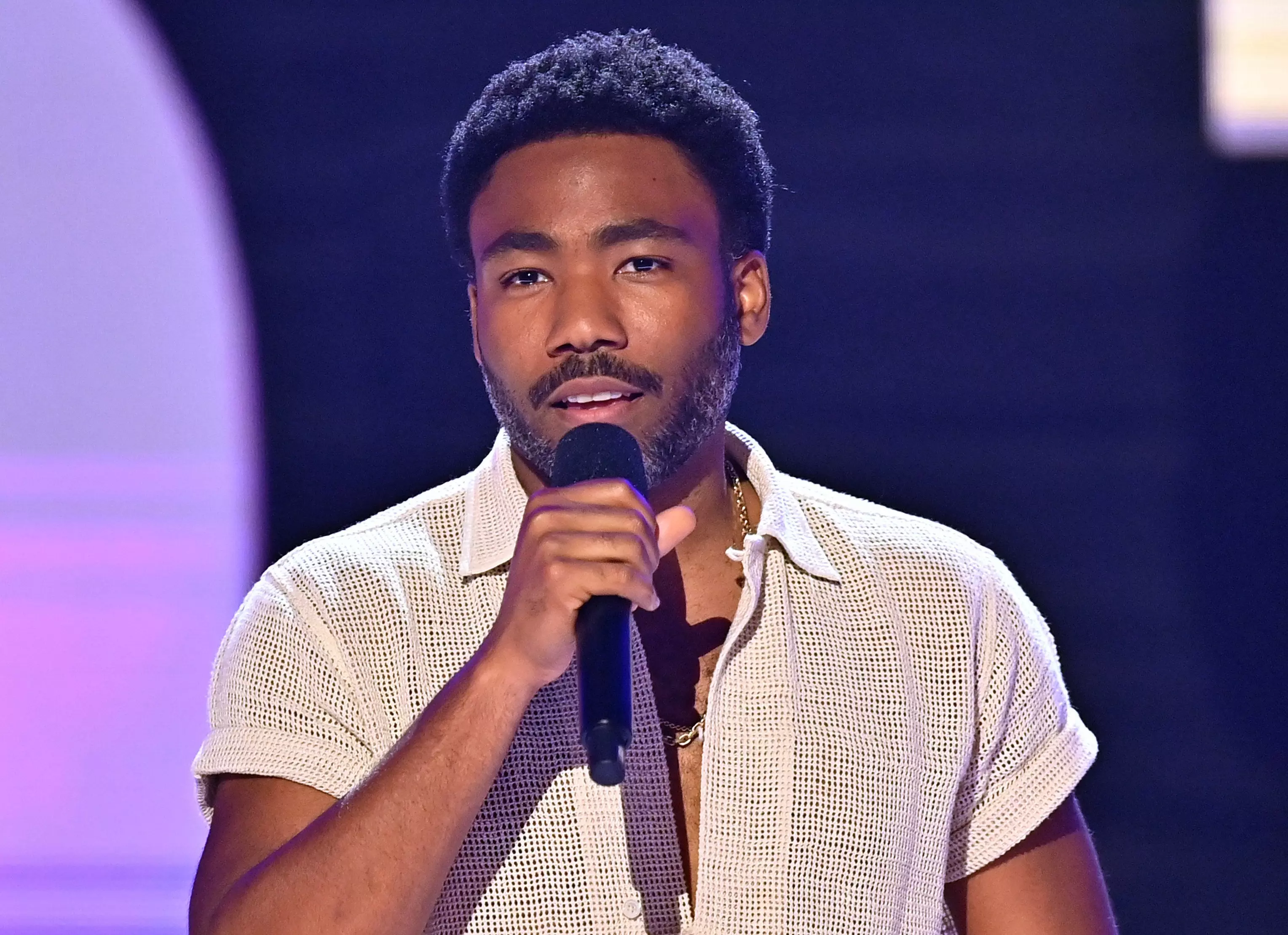
New Music Friday: Listen To New Releases From Childish Gambino, JT, Rauw Alejandro & More
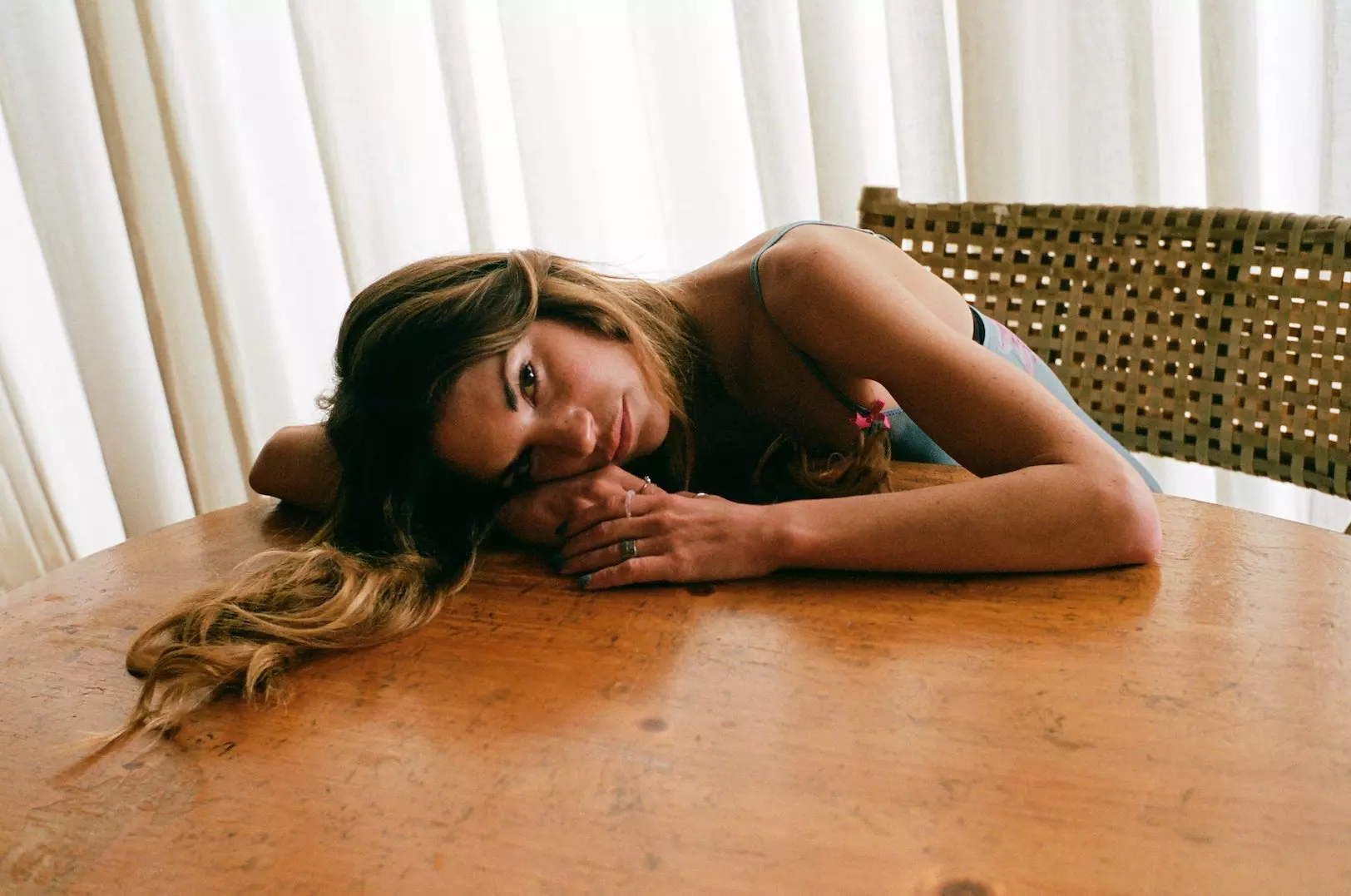
Meet Amy Allen, The Hitmaking Singer/Songwriter Behind Sabrina Carpenter's "Please Please Please" & More Pop Gems
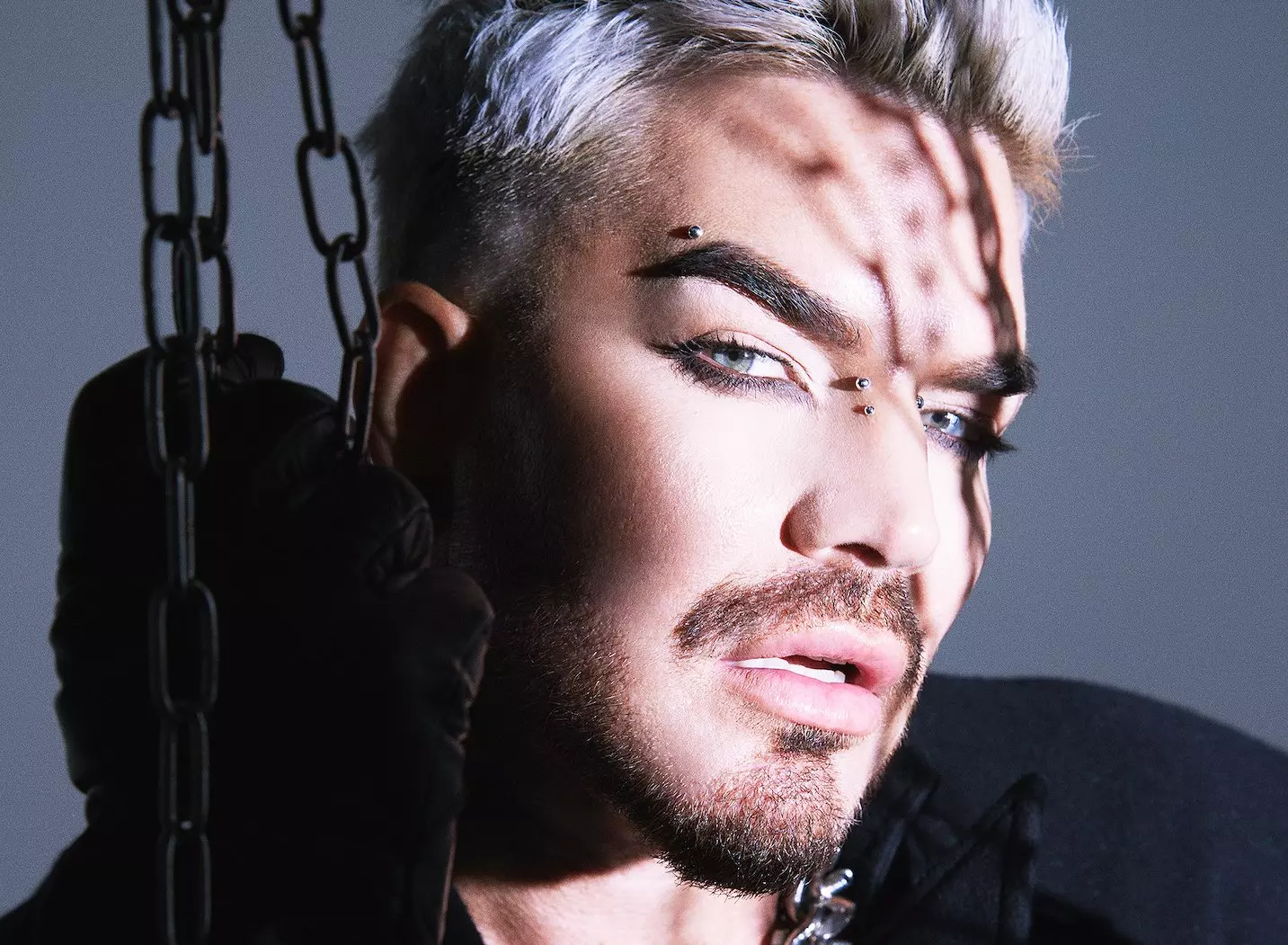
Inside Adam Lambert's 'Afters': How '90s House, Clubbing & Lots Of Sex Inspired His Most "Liberated" Music Yet
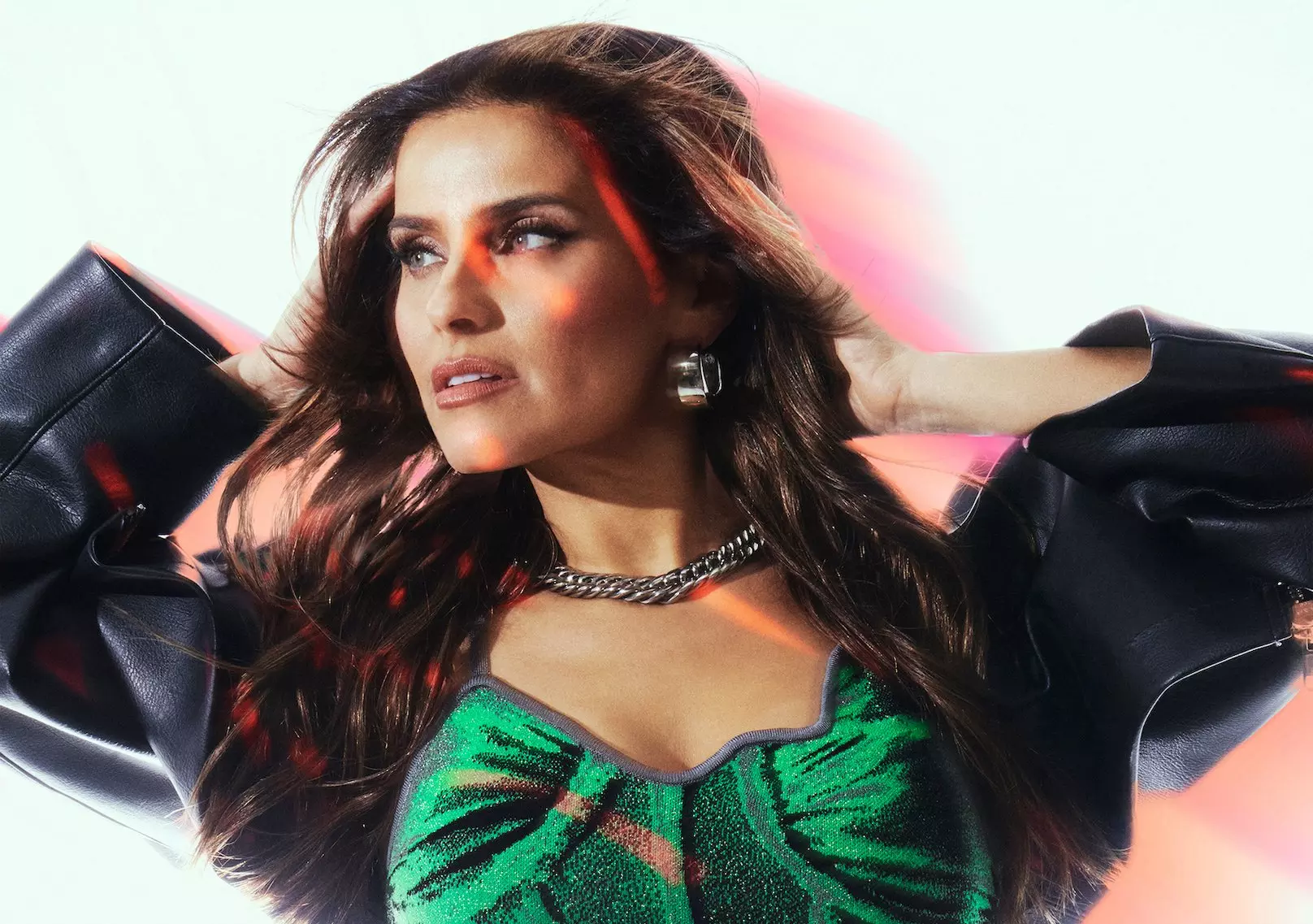
Nelly Furtado On How Remix Culture, ADHD & Gen Z Inspired Her New Album '7'
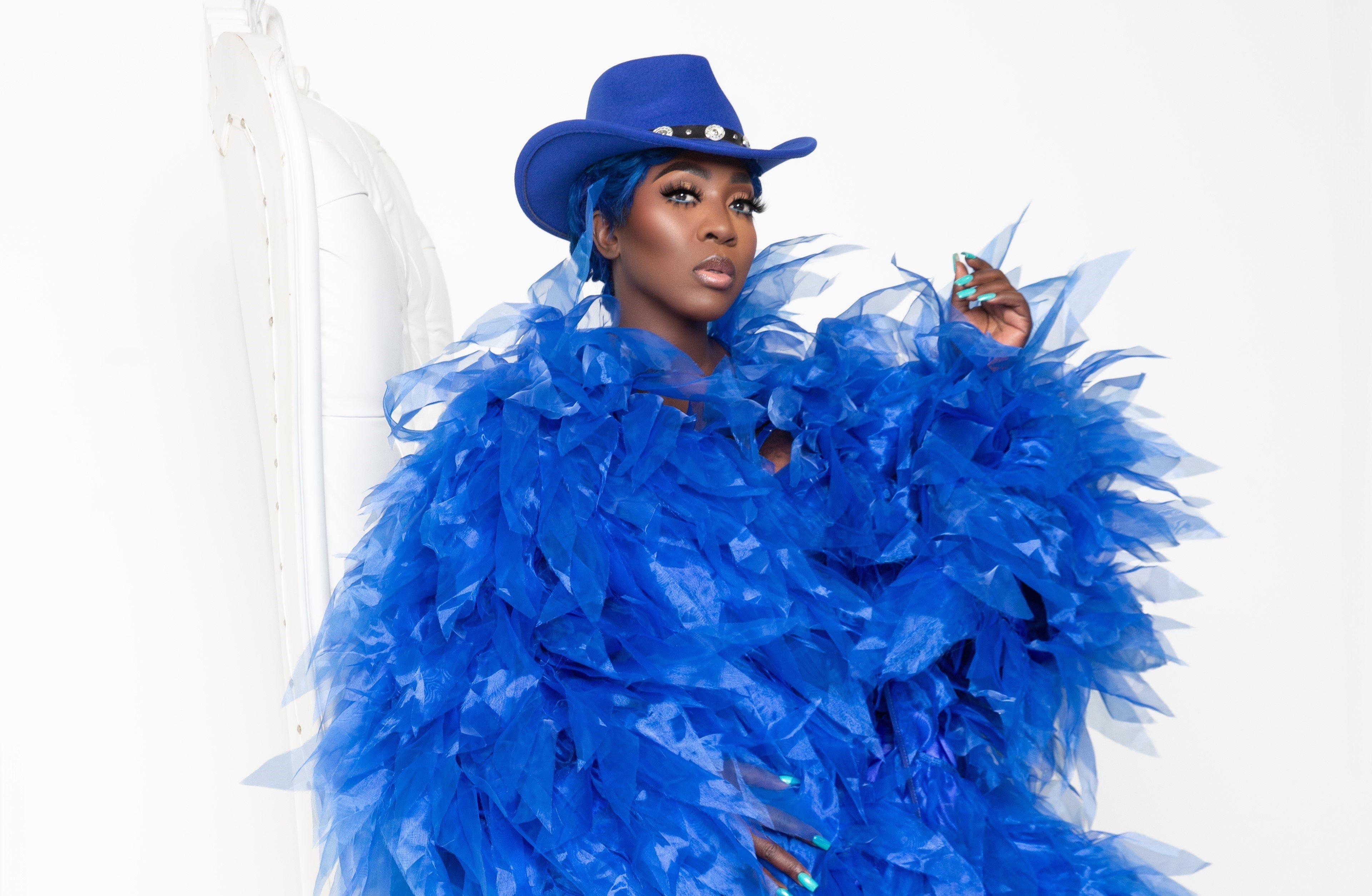
Photo: Mackinley Madhere/Spex Photography
interview
Dancehall Legend Spice Reflects On 'Mirror 25,' Her Near Death Experience & Owning Her Own Vision
"I’m always going to authentically represent dancehall culture," Spice says of creating her new album, 'Mirror 25.' Beyond her trademark sound, Spice's latest includes forays into Afrobeats, soca, R&B, and country.
GRAMMY-nominated singer Spice has ascended the throne, to be crowned the queen of dancehall reggae for this generation. However, she could also be called dancehall’s first lady due to her unprecedented accomplishments over the course of her 25-year career.
Known for her numerous risqué hit singles, creative videos, bawdy stage shows, social media savvy and bold fashion sense, Spice became the first hardcore female dancehall artist to receive a GRAMMY nomination in the Best Reggae Album category. At the 64th GRAMMY Awards, she received the nod for 10, her 2021 debut album, which includes the hit "Go Down Deh" featuring Shaggy and Sean Paul. Spice is also the first Jamaican artist to be a featured character on an American TV series (VH1’s "Love and Hip Hop Atlanta") and the first Jamaican female dancehall artist to reach 1 billion collective views on YouTube.
Spice is the Founder/CEO of Spice Official Entertainment, through which she will release her third studio album, Mirror 25, on Aug. 9. In another first for a Jamaican artist, she unveiled the album cover on "GMA3."
The album’s 25 tracks include forays into Afrobeats, soca, R&B, country and, of course, hardcore dancehall. On the album’s first single, "2085 Tea," Spice ingeniously adopts the persona of a gossip-mongering granny who’s spilling the "tea" on herself. "I’ve gone through trauma, heartache, pain, betrayal, so I didn’t want this gossip to be about other people’s lives," Spice tells GRAMMY.com of the song. "I wanted it to be about my experiences."
Born Grace Hamilton in Spanish Town, Jamaica, Spice came from very humble beginnings. She grew up singing in the church and developed a love of performing while still in school.
In 2000 Spice made her first appearance on a major Jamaican stage show, Sting, when Ninja Man, one of the greatest, most feared opponents in verbal clashes, spotted Spice’s talent. When Spice was handed the mic, she did not disappoint. A few years later, dancehall star Baby Cham introduced Spice to his mentor, maverick producer Dave Kelly, for whom she recorded her first hit single, 2005’s "Fight Over Man."
In 2009, Spice’s career accelerated with her feature on Vybz Kartel’s "Ramping Shop." With its catchy refrain, raunchy patois lyrics, and the undeniable chemistry between Spice and Kartel, "Ramping Shop" became one of the biggest and most controversial dancehall hits. Jamaica’s Broadcasting Commission issued a directive to halt its play on the island’s airwaves but the ban only increased its popularity; "Ramping Shop" spent 15 weeks on Billboard’s Hot R&B/Hip Hop Songs chart.
Since then, Spice’s has released numerous explicit singles accompanied by imaginative videos including "Sheet," "Needle Eye" and "So Mi Like it" — each of which can be viewed as liberated expressions of female sexuality or "slackness" (vulgarity). However, Spice’s music also addresses topical issues such as sexism, on "Think Like A Man", and corrupt policing on "Po-Po" inspired by Black Lives Matter and featuring an impressive verse from Spice’s teenaged son Nicho. Among Spice’s most impactful songs is "Black Hypocrisy," prompted by a derisive social media comment about Spice’s dark complexion.
Spice has survived poverty, homelessness and in 2022, a health scare that almost brought her remarkable journey to a premature end. Ahead of the release of Mirror 25, which she calls "a raw open diary of her triumphs and tribulations" Spice reflected on her life, career, and spilled a little more tea, with GRAMMY.com.
This interview has been edited for clarity.
Congratulations on your 25th anniversary. Does it feel like 25 years have passed since you started?
It feels like it was just yesterday; I can vividly remember each year as I struggled to make it to this point. I remember in 1999, when Bounty Killer handed me the microphone in my community so I could go onstage and showcase my talent; in 2000 when I did my first major performance on Sting in Jamaica and Ninja Man helped me make a name for myself by calling me onstage; when Baby Cham helped me to get my first hit song, "Fight Over Man," by introducing me to Dave Kelly.
But I’m always reminded of my struggle, it has not been an overnight success. I’ve been through a lot to get to this point; to become a GRAMMY nominated queen of dancehall was not a walk in the park.
Tell me about the songs, the topics that you’ve written about on 'Mirror 25'?
As the queen of dancehall, I want to make sure that I represent the genre as authentically as possible, with that hardcore dancehall sound, so the listener will know that’s a girl from Jamaica. On tracks [such as "Gangster" with Chronic Law, featuring Ireland Boss] you can hear the sound system, the bassline, you can almost smell the ackee and saltfish and jerk chicken.
I have a song that could go on the R&B chart. I have a song about what happened in my past relationship ["Ex Boyfriend"], which will be very relatable to women because that song asks, why do men do the things that they do to women? They can’t live without us but treat us in a manner that is degrading sometimes.
There are dancing songs [and] collaborations with Jamaican women; we’re singing about our power as women. My fan base has grown tremendously so there’s an Afrobeats collaboration and we are going into the Indian market. I give all praise to Him after my near-death experience, so there’s a little bit of worship, too.
Towards the end of 2022 we heard rumors that you weren’t well and possibly were in a coma. Please explain what happened.
I was in the Dominican Republic, I had breast augmentation. While I was there my hernia erupted and sent my body into a sepsis shock.
I felt like I died because of what I went through. At one point, I had an out of body experience. I saw pictures of the sepsis that had eaten away at my skin; I shared the pictures with my fans. I was literally laying there with an open stomach, without skin. It was a traumatic experience but through the grace of God, somehow, he brought me back to normal.
Did you fear that you wouldn’t be able to resume your career?
Oh, absolutely. This happened in November 2022 and for the rest of that year, and throughout 2023, I was in and out of the hospital. The sepsis also affected some of my organs. I did surgery to fix another hernia that they caused when they opened my chest up to save my life. By the grace of God, I completed my final surgery, and the hernia was repaired.
Watching you perform on stage now, you twerk, "wine up your waist,"do splits. If we didn’t know what had happened, we would never guess you have been through such an ordeal.
God is good, I give Him all the praise.
The first single from 'Mirror 25,' "2085 Tea" is so cleverly written and delivered as you get your jabs in about certain people including your children’s father, "Love and Hip-Hop Atlanta" castmates and your back up dancer who allegedly had an affair with your now ex-boyfriend. How did the song come together?
It started when I figured out what I wanted to call my album. When I look in the mirror, I do a lot of self-reflection, thinking about my past, the things I’ve managed to overcome, and I wondered, what will I be doing when I get older? So, the album’s name, Mirror 25 birthed the idea of putting myself in 2085 and talking about what I’ve been through. And if I’m in the future, obviously, I’m going to be an older person, so I started talking in my granny voice and I thought, oh my God, that’s an idea.
I love the way you are styled for your portrayal of a granny in the video: gray wig, pearls, long skirt, and the vintage TV set, the room’s décor looks like a grandmother’s home. Were all of the things we see in the video your idea?
The ideas are all me, but I have a team of people that execute them. I called my makeup artist, Nosworthy Creations and asked, "How can I make my face look more wrinkled, like an older person?" She said "you can use a prosthetic, they do that in movies." So she reached out to someone who works on movie sets and they told her what to put on my face; that process took six hours to apply then dry on my face to make it appear wrinkled.
JD Production and [director] Spex found the old TV and the place that looked like an older person’s home. Empress the Glam did my hair although I’m mad at her because I wanted a little blue in the gray hair because even when I’m old, I’m going to be wearing my blue. [Laughs.] I was so happy with the outcome, but it was a very long process.
Busta Rhymes is featured on the country/dancehall/hip-hop track "Round Round." In June 2023, the BET Awards celebrated hip-hop's 50th and honored Busta; he invited you to perform as part of the tribute segment. What was that experience like?
I was excited to celebrate in that moment, it’s one of my greatest memories with Busta and within that segment with other Caribbean artists, I made sure I represented the Caribbean in a way that’s true to myself. Because it was BET, some people thought that I shouldn’t [dance] in the style that I usually do.
I’m not sure if people understand that before you appear on TV, your song and performance have to be approved. It’s not like Busta called me up from the audience; anything I did on the stage that night was rehearsed, approved. There were mixed reactions to my performance, like oh my God, why did she dance like that? Because that’s the way I dance and as the queen of dancehall, I’m always going to authentically represent dancehall culture.
Tell me about recording "Round Round."
"Round Round" is a country western dancehall blend. [Jamaican producer] YowLevite, who put the riddim together said, "There’s too much going on, the riddim sounds like country, it sounds like dancehall." I said, "Give me the riddim, I’ll know what to do with it." I stayed true to myself as a dancehall artist, but I sound a little country, too. It’s unique and I thought, who else is that unique to bring the elements of hip-hop, country and dancehall together on one song? Busta was the only person who came to mind.
I recorded my part, sent it to him, and he said "Boss lady, it’s a big tune"; that floored me because I didn’t expect that response, he loved the track. Working with Busta, an icon, is humbling to my spirit because he is such a sweetheart, always encouraging, always pushing our Jamaican culture. I’m very honored to collaborate with him on "Round Round." People want to dance to it, it makes people happy and that makes it more fun for me.
How do you handle criticism like what you received about your dancing on BET, the disparaging comments on social media, even the bashing from other artists?
I call my fans "besties" because I make them feel like they are my best friends; my besties say I don’t deal well with criticism, I need to leave certain things alone. But sometimes when these criticisms get too much, I will go live and say, "Come besties, let’s talk about it."
I address many things because if you leave many things, people will believe many things. If someone spreads a rumor about me, or if something comes out that I need to clear up, I will clear it up. It’s been 25 years, like I said, it wasn’t a walk in the park to reach here so I’m not going to sit back and let anybody tarnish my brand.
Read more:The Women Essential To Reggae And Dancehall
How has dancehall changed in the 25 years you’ve been doing it?
Dancehall has evolved drastically: the creative process has changed, and new sounds were born. More people are discovering the genre on a larger scale. More artists, especially females, have a voice now.
Technology has modernized our releases, whereas in the past, I used to print CDs, walk around and hand them out to taxi and bus drivers to promote my music. Today, I’m on TikTok and Instagram with the touch of a button.
How have you changed as an artist?
My fans also know me as an entrepreneur, I’ve been a businesswoman for many years. I have my clothing company, Gracie Noir, which is leisure wear, specializing in track suits for travel. I recently released a book, The Navigational Yearly Planner; I’m trying to help my fans become more organized, more business savvy, learn financial literacy. That has helped me with my record label where I have to write out everything that has to be done when releasing music.
I’ve also grown more spiritually, professionally, mentally. I’m a better person in a better state of mind, I have more knowledge on the business of music. I was stuck in a contract with VP Records for 10 of my 25 years, they didn’t release my album (hence, her debut album’s title, 10). My [2018] Captured mixtape addresses that, because I felt like I was captured.
I’ve learned so much about publishing, releasing music, getting it out to the DSPs. That’s why I’m so excited about Mirror 25 because I’m releasing it on my own label, Spice Official Entertainment.
Latest News & Exclusive Videos

New Music Friday: Listen To New Songs From ATEEZ & G-Eazy, Shawn Mendes, Latto, & More

Watch Alanis Morissette Win At The 1999 GRAMMYs

Dancehall Legend Spice Reflects On 'Mirror 25,' Her Near Death Experience & Owning Her Own Vision

The Recording Academy Philly Chapter Celebrates 30 Years With An Inaugural Block Party & Fireside Chat With Tierra Whack

Behind Ne-Yo's Biggest Hits: How Jay-Z, A Wardrobe Malfunction & Stargate Influenced "So Sick," "Closer" & More
